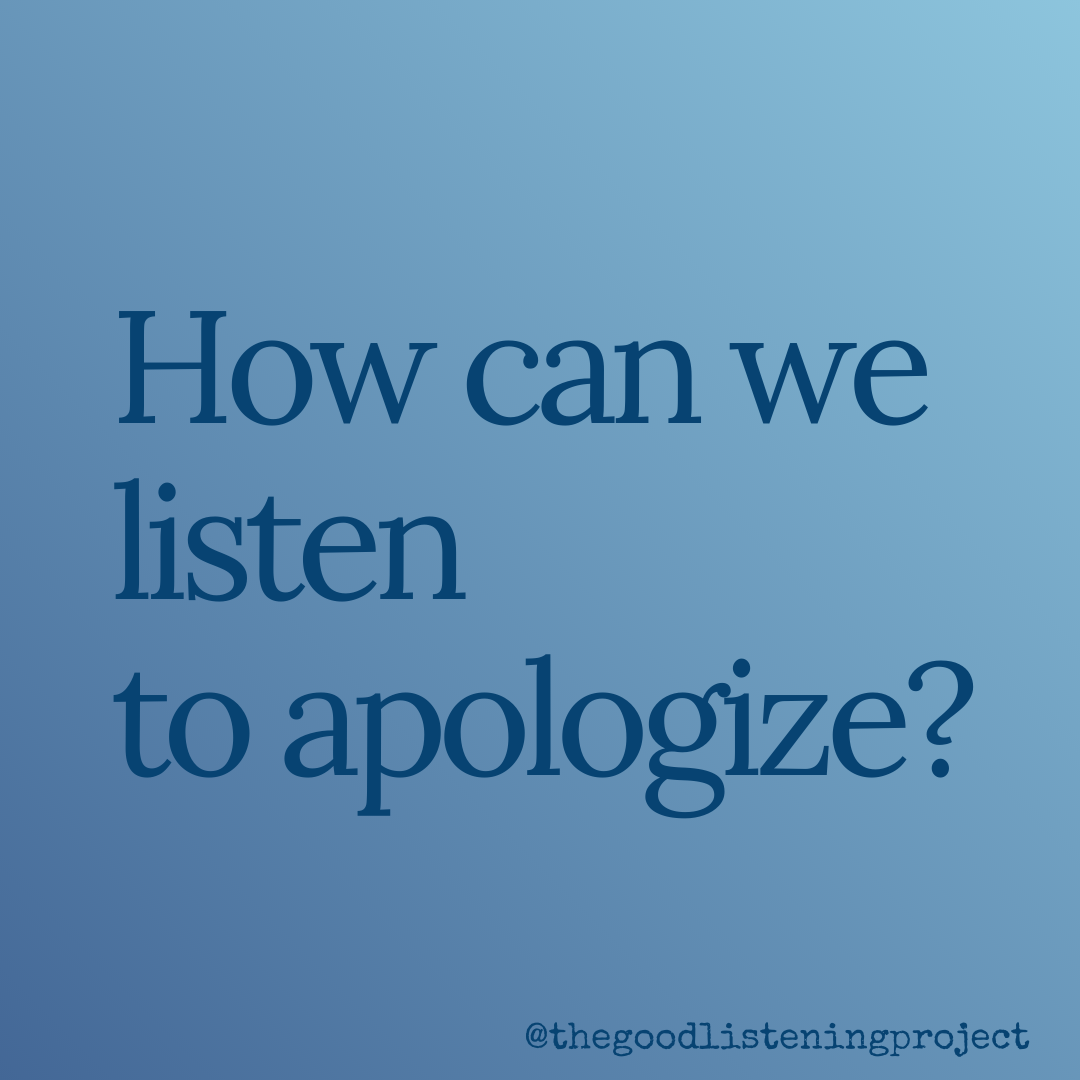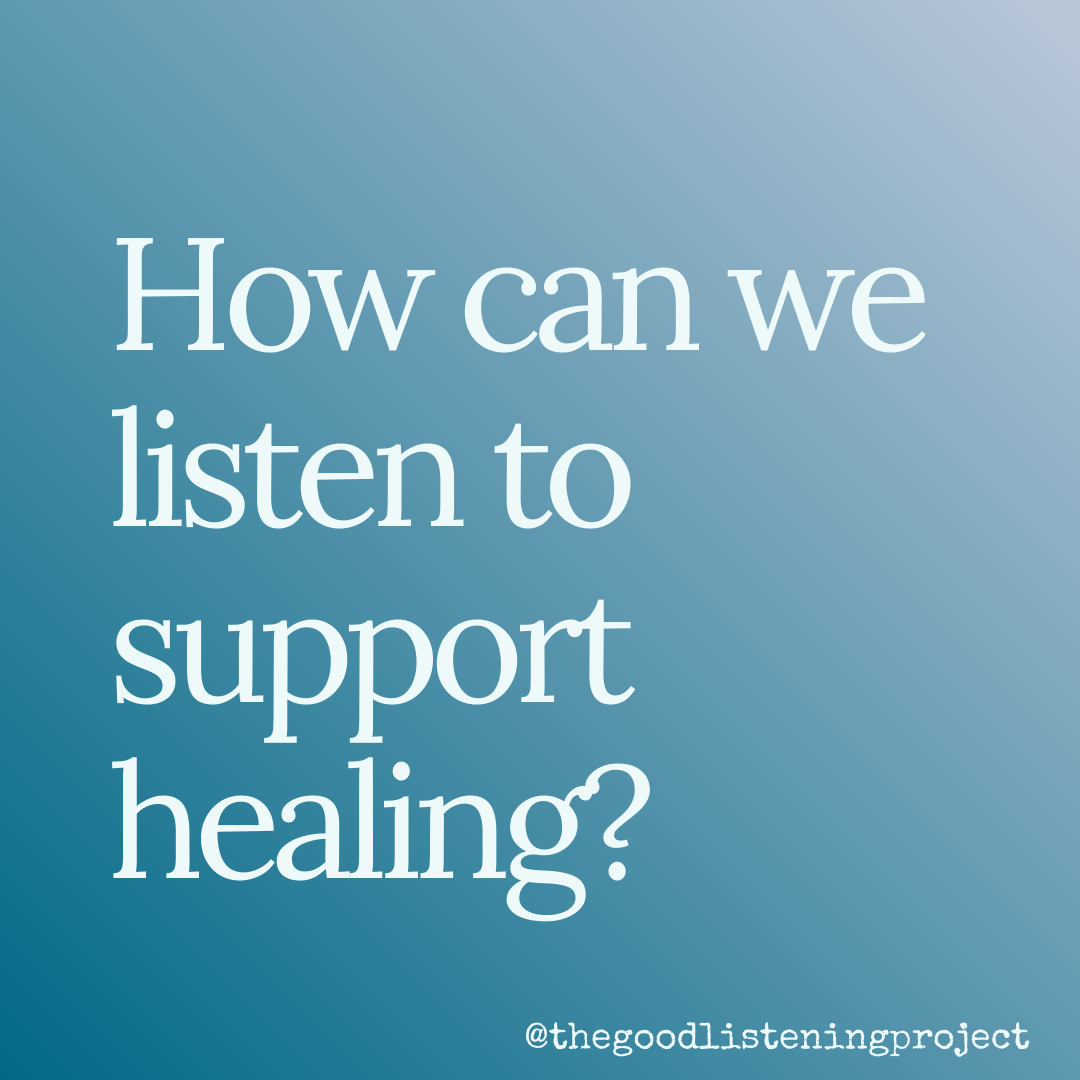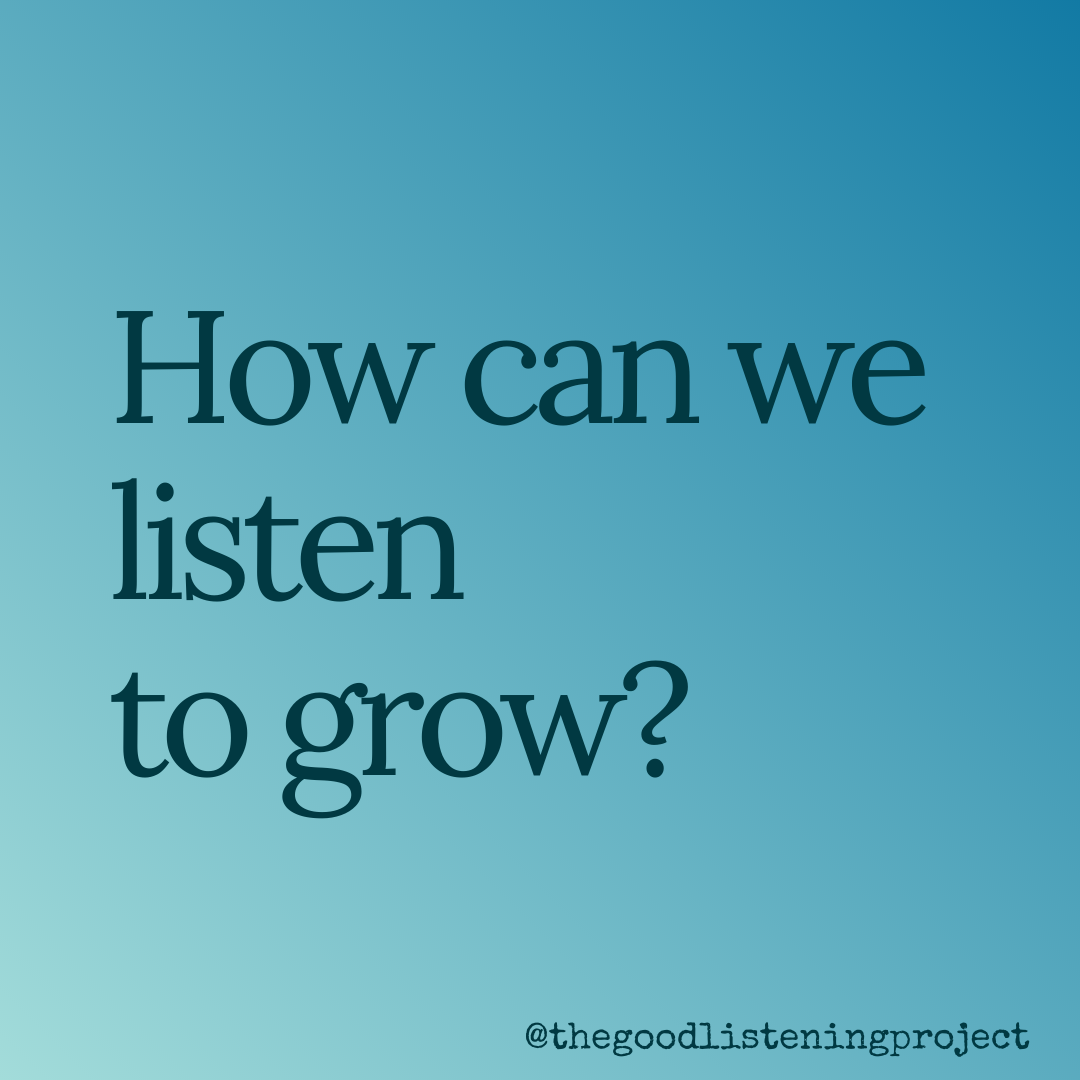There are so many different reasons for listening. In this series, we’re presenting a range of inquiries as a way to think about how and why we listen, and how our intentions affect the experience.
Today we’re asking: How can we listen to apologize?
What happens when we seek to understand?
What happens when we know we can't listen in the moment?
How do you know when you are listening to understand?
What do you do when you know you can’t listen in the moment?
Not good timing? We shouldn’t try to force it when we know we can't listen. Saying things like: “I want to give you my full attention, but if you can wait until 5pm I’ll be able to,” will let the other person know that while we want to listen, now might not be the best time. And that’s okay! Trying to have a conversation when we aren’t ready can make it hard to hear what others are saying.
When we feel ready, we can seek to understand someone else’s point of view. We can do this by repeating back what they said to see if we got it right. Our good listening can help our conversation partner switch to listening mode too. If they’re open to hearing a new perspective from us, they will likely ask, “What do you think?” or “Don’t you agree?” If they aren’t ready, they’re not going to hear us regardless.
Summer 2020
There are so many different reasons for listening. In this series, we’re presenting a range of inquiries as a way to think about how and why we listen, and how our intentions affect the experience.












